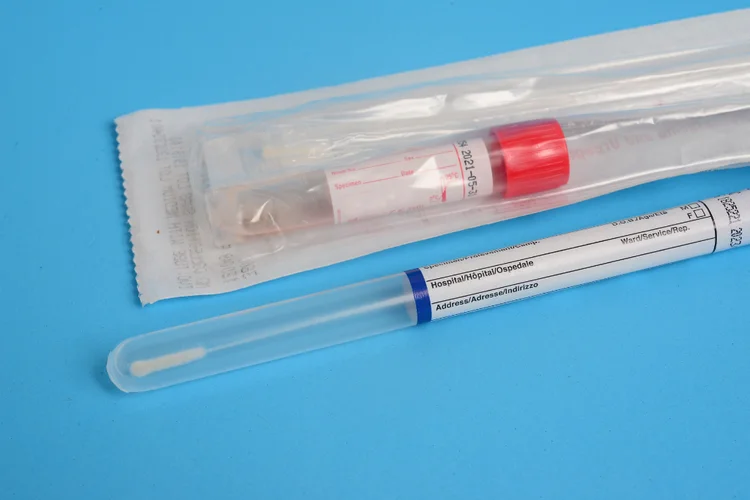Mycoplasma Genitalium (Mgen)
Last updated: Nov 18, 2025
| Test Options |
|
| Price |
|
| Appointment Options |
Same-day appointment (subject to availability). Book via WhatsApp: 8877 0326 or email: hi@atamed.sg |
| Clinic Locations |
Orchard: 1 Orchard Blvd
#05-09 Camden Medical Centre, S248649 Tanjong Pagar: 72 Anson Rd #01-02 Anson House, S079911 |
What Is Mycoplasma Genitalium (Mgen)?
Mycoplasma genitalium (Mgen) is a sexually transmitted bacterium that can
infect the urinary and reproductive tracts in both men and women.
It belongs to the broader group of Mycoplasma
bacteria, which are atypical in that they lack a cell wall. This structural
difference makes them naturally resistant to certain antibiotics such as penicillin.
While Mgen is specifically linked to sexual transmission, other species in the same group,
such as Mycoplasma pneumoniae, are
not sexually transmitted and are more commonly associated with respiratory tract infections
like atypical pneumonia.
Mgen does not usually go
away on its own and typically requires medical treatment to clear the infection. If
left untreated, it can be passed to sexual partners and may lead to complications,
particularly in women.

How Is Mycoplasma Genitalium Transmitted?
Mgen is transmitted primarily through unprotected sexual
contact, including vaginal, anal, and possibly oral sex.
The bacteria can spread through bodily fluids and may infect the urethra, cervix, or rectum. It can
also be passed from one person to another even when no symptoms are present, making it difficult to
detect without proper screening.
Mycoplasma Genitalium Symptoms & Complications
Many people with Mgen do not experience noticeable symptoms. When symptoms do occur, they can differ
between men and women.
These symptoms are non-specific and often resemble those
caused by other sexually transmitted infections (STIs), such as chlamydia or gonorrhoea, which makes
precise diagnosis important.
If left untreated, Mgen can lead to serious health complications, particularly in women.
| Men | Women | |
|---|---|---|
| Symptoms |
|
|
| Complications |
|
|
Mycoplasma Genitalium Testing & Diagnosis
Diagnosis of Mgen typically involves testing a urine sample or a swab from the genital area
using a nucleic acid amplification test (NAAT),
which detects the bacterium’s genetic material.
Testing may be recommended if you have ongoing symptoms of a sexually transmitted infection,
especially if other common infections such as chlamydia or gonorrhoea have been ruled out.

Mycoplasma Genitalium Treatment
Treatment for Mgen generally involves a course of antibiotics, although antibiotic resistance is a
growing concern.
The treatment plan may involve more than one type of
antibiotic and is often adjusted based on the strain’s resistance pattern and how well the
initial treatment works.
Because resistant strains are increasingly common, your doctor may recommend follow-up testing or
resistance testing to guide further management.
It is important to take the full course of medication, even if your symptoms improve, and to return
for follow-up testing to make sure the infection has been successfully treated.
Mycoplasma Genitalium Testing Cost
At ATA Medical, we provide discreet and confidential testing for Mycoplasma genitalium (Mgen). Our prices are as follows:
| Test | Test Type | Price* |
|---|---|---|
| Consultation | From $49.05 | |
| Urogenital Mycoplasma Culture | Swab / Urine | $76.30 |
| Mycoplasma Genitalium PCR | Swab / Urine | $87.20 |
| Chlamydia & Gonorrhoea PCR | Swab / Urine | $174.40 |
| STD Screening Packages (Female) | ||
|
Enhanced Female Genital Screen (9 tests) Chlamydia, Gonorrhoea, Mycoplasma genitalium, Mycoplasma hominis, Trichomonas, Ureaplasma parvum, Ureaplasma urealyticum, Candida, Gardnerella Vaginosis |
Swab | $348 |
|
Complete Female STD Screen (15 tests) HIV, Syphilis, Hepatitis B, Hepatitis C, Herpes Simplex Virus 1 and 2, Chlamydia, Gonorrhoea, Mycoplasma genitalium, Mycoplasma hominis, Trichomonas, Ureaplasma parvum, Ureaplasma urealyticum, Candida, Gardnerella Vaginosis |
Blood + Swab | $478 |
| STD Screening Packages (Male) | ||
|
Male Genital Screen (8 tests) Chlamydia, Gonorrhoea, Mycoplasma genitalium, Mycoplasma hominis, Trichomonas, Ureaplasma parvum, Ureaplasma urealyticum, Monilia |
Urine | $318 |
|
Complete Male STD Screen (14 tests) HIV, Syphilis, Hepatitis B, Hepatitis C, Herpes Simplex Virus 1 and 2, Chlamydia, Gonorrhoea, Mycoplasma genitalium, Mycoplasma hominis, Trichomonas, Ureaplasma parvum, Ureaplasma urealyticum, Monilia |
Blood + Urine | $428 |
| STD Screening Packages (Female or Male) | ||
|
Enhanced Genital Ulcer Testing (18 tests) HIV, Syphilis (swab + blood test), Hepatitis B, Hepatitis C, Chlamydia, Gonorrhoea, Mycoplasma genitalium, Mycoplasma hominis, Trichomonas, Ureaplasma parvum, Ureaplasma urealyticum, Herpes Simplex Virus 1 and 2, Haemophilus Ducreyi (Chancroid), Cytomegalovirus, Lymphogranuloma, Venereum, Treponema Pallidum (Syphilis), Varicella Zoster Virus |
Blood + Swab | $538 |
^Prices last updated on Jan 28, 2026. While every effort is made to keep pricing information up to date, please contact our team to confirm the latest rates.
You may also consider other STI
screening packages depending on your health needs and risk factors. Male and female doctors
are available upon request to support your comfort.
If you are unsure which is most suitable for you, our doctors can advise you during your
consultation.
Mycoplasma Genitalium Prevention
You can reduce your risk of Mgen by taking preventive steps such as:
- Using condoms consistently during all types of sexual activity.
- Limiting the number of sexual partners.
- Avoiding sexual contact with someone who has symptoms of a STI.
- Getting tested regularly if you are sexually active, especially with new or multiple partners.
- Being open with your partner about STI testing to help reduce the risk of transmission.
There is currently no vaccine for Mgen, so these preventive behaviours play an important role in lowering your risk.

Book an Appointment for Mycoplasma Genitalium Testing
ATA Medical @ Orchard
Nearest MRT: Orchard Boulevard Station (TE13)
Contact Number: 6223 0682
Email: camden@atamed.sg
Opening Hours:
Mon - Fri: 8:30 AM to 12:30 PM, 1:30 PM to 5:30 PM
Sat: 8:30 AM to 12:30 PM
Sun & PH: Closed
ATA Medical @ Tanjong Pagar
Nearest MRT: Tanjong Pagar Station (EW15)
Contact Number: 6223 0682
Email: hi@atamed.sg
Opening Hours:
Mon - Fri: 8:30 AM to 12:30 PM, 1:30 PM to 5:30 PM
Sat: 8:30 AM to 12:30 PM
Sun & PH: Closed


